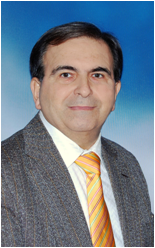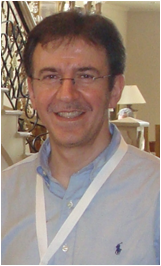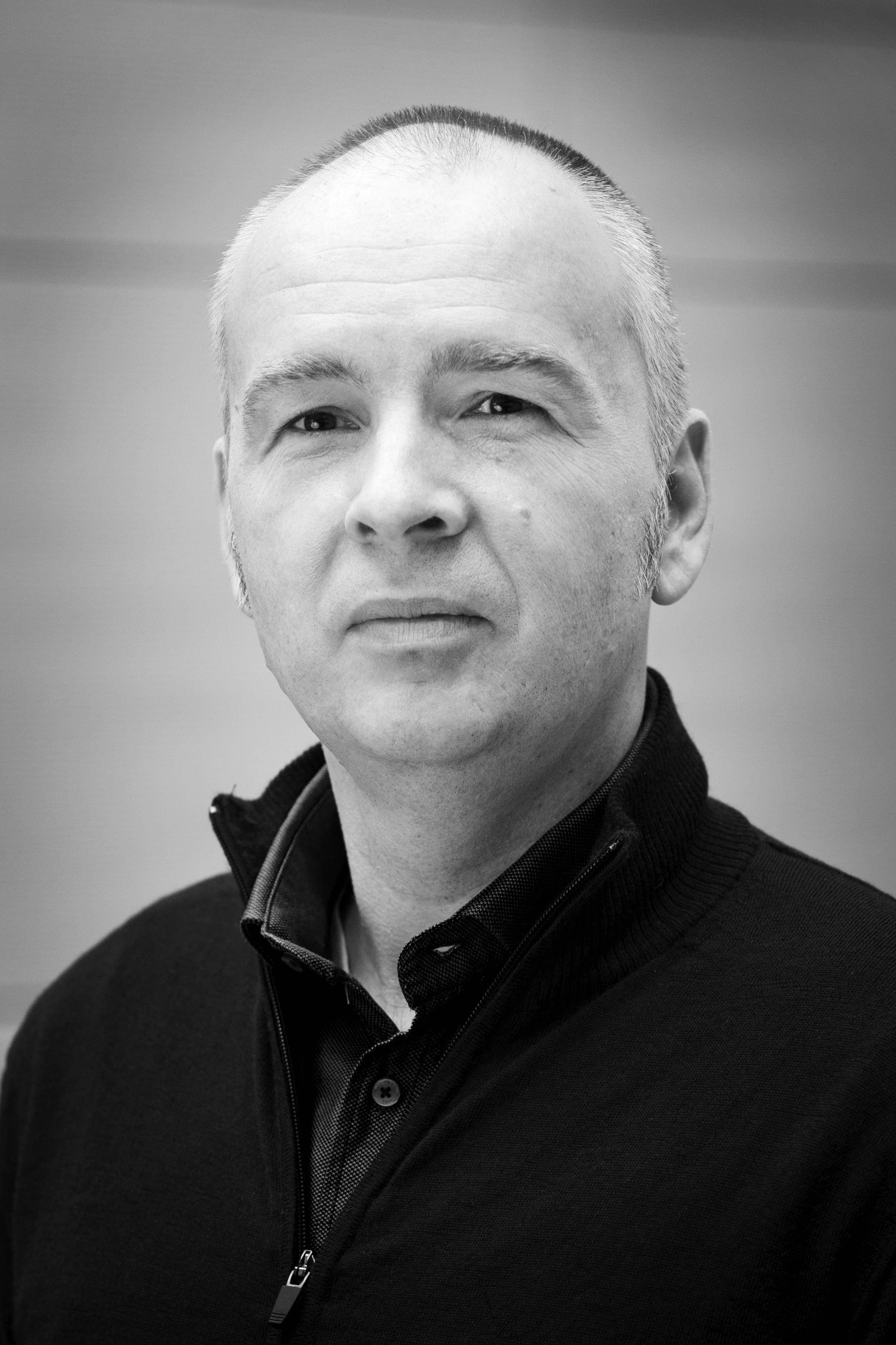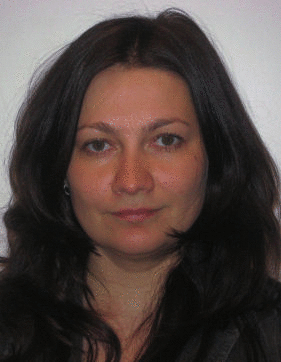The EMCSR 2014 already started, still we want to present to you the last part of our “Behind the Scenes” series, part 2 of the “Complexity and Strategy” theme. You can find the coverage of Part 1 on this topic here .
Keep in mind that the speaker profiles include interesting background information, as well as answers to questions we asked them about their fields of research.
 Nikitas A. Assimakopoulos is a Professor in the Department of Informatics at the University of Piraeus, Greece. His research interests include Systemic Methodologies, Systems Approaches to Management and Informatics, and Applied Operations Research Techniques. He has lectured at Chelsea College, University of London, England, and at the Athens University of Economics and Business, Greece.
Nikitas A. Assimakopoulos is a Professor in the Department of Informatics at the University of Piraeus, Greece. His research interests include Systemic Methodologies, Systems Approaches to Management and Informatics, and Applied Operations Research Techniques. He has lectured at Chelsea College, University of London, England, and at the Athens University of Economics and Business, Greece.
Nikitas is Associate Editor in five international journals and reviewer in 12 well-known journals which are associated with the four International Societies where he serves as an active member. He is the founder and the Editor-in-Chief of the Journal of Applied Systemic Studies (IJASS) published by Inderscience Publishers. Nikitas is the founder and elected President of the Hellenic Society for Systemic Studies (HSSS). He is the founder and the coordinator of the first international Post-Graduate Professional Program Certified Systemic Analyst Professional (CSAP) which is supported by the HSSS.
 Dimitrios S. Varsos holds a Bachelor’s Degree in Business Administration and is currently a Ph.D. candidate at the Department of Informatics of the University of Piraeus. He received his Master’s Degree in Organization and Management, concentrating in Industrial Technical Management. He is the co-founder and Managing Director of MSI Hellas Consulting Group.
Dimitrios S. Varsos holds a Bachelor’s Degree in Business Administration and is currently a Ph.D. candidate at the Department of Informatics of the University of Piraeus. He received his Master’s Degree in Organization and Management, concentrating in Industrial Technical Management. He is the co-founder and Managing Director of MSI Hellas Consulting Group.
His work in research, consulting and education involves more than 120 corporations and governmental agencies in Europe, the U.S. and Russia. His research areas of interest include systems theory, complex adaptive systems, organizational theory, systemic methodologies, systems modeling and simulation. Dimitrios is a Member of the Board of Directors of the Hellenic Society for Systemic Studies (HSSS) and a lecturer in the Post-Graduate Professional Program Certified Systemic Analyst Professional (CSAP).
At EMCSR, Dimitrios and Nikitas are chairs of the symposium Professional Systemics and in their own words: “Professional Systemics is the practical application of systems thinking into everyday situations. It is a means through which to manage complexity in a manner which has achievable, measurable and realistic results. Professional Systemics is a disciplined approach which rests on three main elements: Education, Empowerment and Experience.”
 “Systemic Excellence Group” is a demonstration presented by Louis Klein. Louis is a leading expert in the field of social complexity, a dedicated scientist and an international management consultant. His focus is with complex projects, and systemic change management on a global, cross-cultural stage.
“Systemic Excellence Group” is a demonstration presented by Louis Klein. Louis is a leading expert in the field of social complexity, a dedicated scientist and an international management consultant. His focus is with complex projects, and systemic change management on a global, cross-cultural stage.
In 2001 Louis founded the Systemic Excellence Group as an independent think tank for leading practice. Today SEgroup operates globally in change management and project performance issues. Large scale change projects are also part of his schedule, as in-depth field research resulting in a long list of academic publications.
Dr. Klein is currently Board Director of the World Organisation of Systems and Cybernetics and focus group chair at the International Center for Complex Project Management. Prior to that, he was Vice President of the International Society for the Systems Sciences. Parallel to his work he has taught at Universities in Switzerland, the UK and at the Berlin School of Creative Leadership as well as at the ESCP Europe Business School. Additionally he served as Head of Project Studies at the Humboldt-Viadrina School of Governance.
About “Systemic Excellence Group” Louis says: “The SEgroup learning journey had been a radical one. Promoting change in organisations makes it difficult to shy away from your own development. On the contrary, if this is your passion, you are inclined to try it out yourself first. And this path of continuous change and innovation has not always been a straight one. Like a market curve, the development has been fluctuating, but the trend has been steady: What started as a small Limited in Berlin is now a global cooperative with Consortial Partners from San Francisco to Sydney and from Shanghai to Cape Town. And what for the moment looks like a satisfactory end will turn out to have been just another milestone on an on-going learning journey.”
 Christian Büscher studied sociology at the Bielefeld University and in Edinburgh (GB) with an emphasis on sociology of risk and technology. 1998 he received the German degree “Diplom” at the Bielefeld University. He is a Fellowship holder of the DFG graduate school “Technisierung und Gesellschaft” of the Technology Unversity Darmstadt. 2003 he received his Dr. phil. at the Technology University Darmstadt.
Christian Büscher studied sociology at the Bielefeld University and in Edinburgh (GB) with an emphasis on sociology of risk and technology. 1998 he received the German degree “Diplom” at the Bielefeld University. He is a Fellowship holder of the DFG graduate school “Technisierung und Gesellschaft” of the Technology Unversity Darmstadt. 2003 he received his Dr. phil. at the Technology University Darmstadt.
He is working on several projects as: Interdisciplinary Risk Research, Systemic risks in energy infrastructures and Knowledge policy.
Christian is chair of the symposium on Social and technical “volatility”: commonly shared reference problem of interdisciplinary research on the energy system? and in his own words: “This interdisciplinary symposium tries to shed light to the complex of energy provision, transportation and distribution in the distinct dimensions of structure, institution and operation”
 “Systems Analysis for Informing Policy” is a demonstration presented by Elena Rovenskaya. Elena is the Acting Program Director of the Advanced Systems Analysis (ASA) Program at the International Institute for Applied Systems Analysis (IIASA). She is also a Research Scholar (on leave) at the Optimal Control Department of the Faculty of Computational Mathematics and Cybernetics, Lomonosov Moscow State University, Russia. Her scientific interests lie in the fields of theory of optimal control, ill-posed problems and economic-environmental modeling. Elena´s current research focuses on modeling optimal forest management, exploring systemic risks in ecological networks, modeling economic growth with environmental constraints, and agent-based modeling of regional development.
“Systems Analysis for Informing Policy” is a demonstration presented by Elena Rovenskaya. Elena is the Acting Program Director of the Advanced Systems Analysis (ASA) Program at the International Institute for Applied Systems Analysis (IIASA). She is also a Research Scholar (on leave) at the Optimal Control Department of the Faculty of Computational Mathematics and Cybernetics, Lomonosov Moscow State University, Russia. Her scientific interests lie in the fields of theory of optimal control, ill-posed problems and economic-environmental modeling. Elena´s current research focuses on modeling optimal forest management, exploring systemic risks in ecological networks, modeling economic growth with environmental constraints, and agent-based modeling of regional development.
About “Systems Analysis for Informing Policy” she says: “This session presents three examples of IIASA projects where advanced systems analysis methods were applied to real policy issues: 1) Modeling consensual bi-lateral negotiations on fishery policy, 2) Systemic risks and security management in land use systems, and 3) Catastrophe risk modeling to inform proactive public finance for disasters. These examples show how advanced methods can inform policy. Often, scientific results that policymakers use are produced by rather simple and standard approaches. The results produced by advanced methods, in contrast, often do not apply to real-life problems. By conducting research in a multi-disciplinary fashion, the IIASA studies that I will present successfully eliminate this gap; they provide impressive showcases of successful applications of modern advanced methods.”



